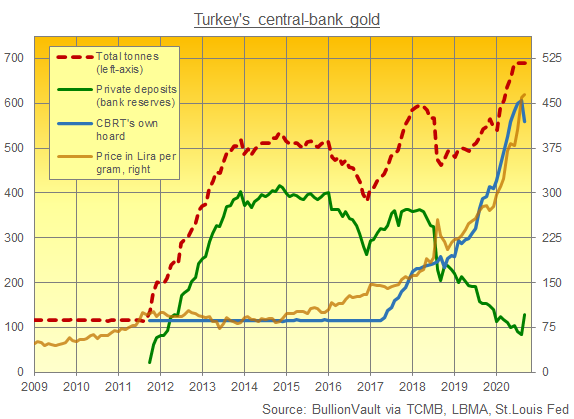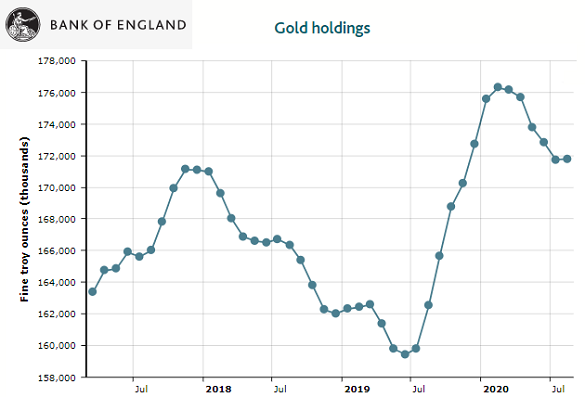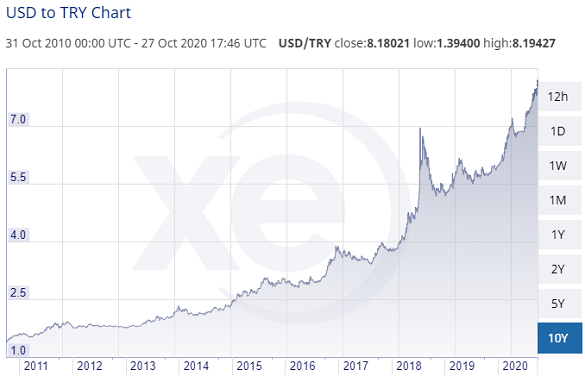Money, Politics and Turkey's Gold Repatriation from London

"The fate of Turkey's banks is increasingly tied to the fate of Turkey's government – and the stability of the government's finances equally depends on the stability of the banks' foreign currency funding base."
"Sum up the banks' exposure to the central bank, the banks' exposure to government’s local dollar debt, and the banks' holdings of Eurobonds, and close to $150 billion (about half) asset side of the banks' foreign currency balance sheet is Turkish sovereign risk. More really, given that some of the foreign currency lending to various projects is implicitly backed by the government."
Erdoğan is suing French mag Charlie Hebdo. A reminder that in 2017 his party was allowed to hold electoral rallies in France, while Germany, Netherlands and others banned them. The explicit reason was that we revere freedom of speech. You have to take the rough with the smooth...
— Stanley Pignal (@spignal) October 28, 2020















 Email us
Email us
